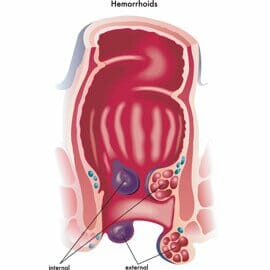The term gut health has gained popularity in recent years and I am sure you have heard it being thrown […]

Hemorrhoids and diet
The embarrassment, isolation and shame cannot begin to explain the agony people suffering from hemorrhoids (HEM-uh-roids) also known as piles […]
